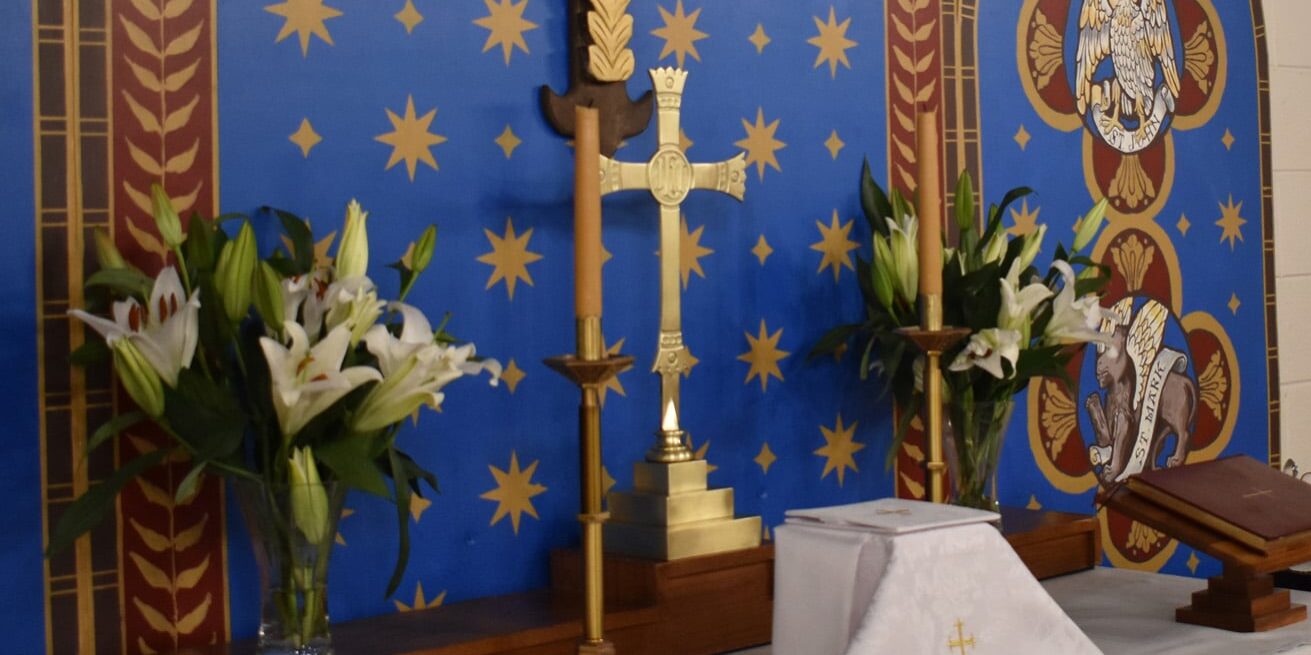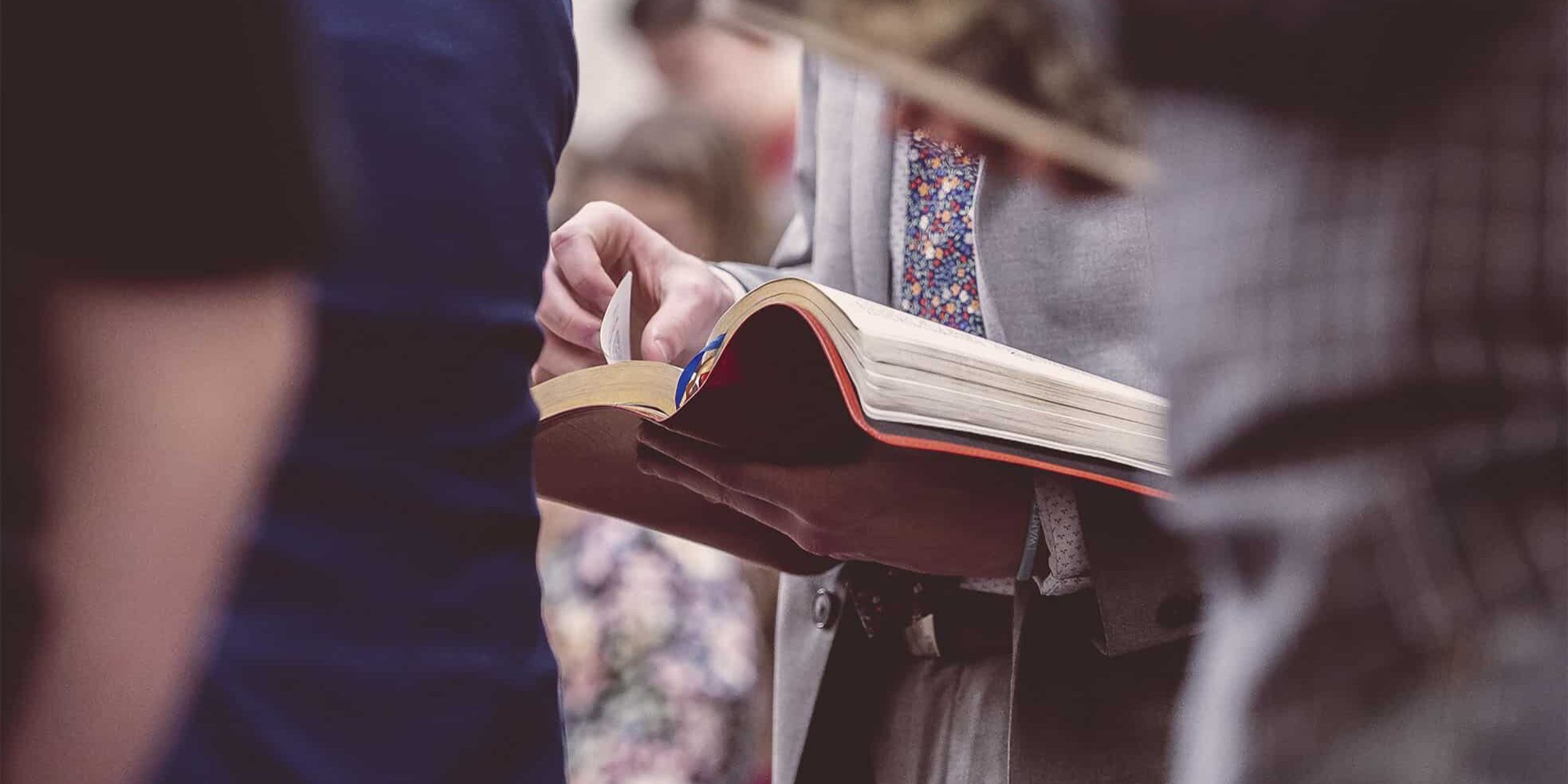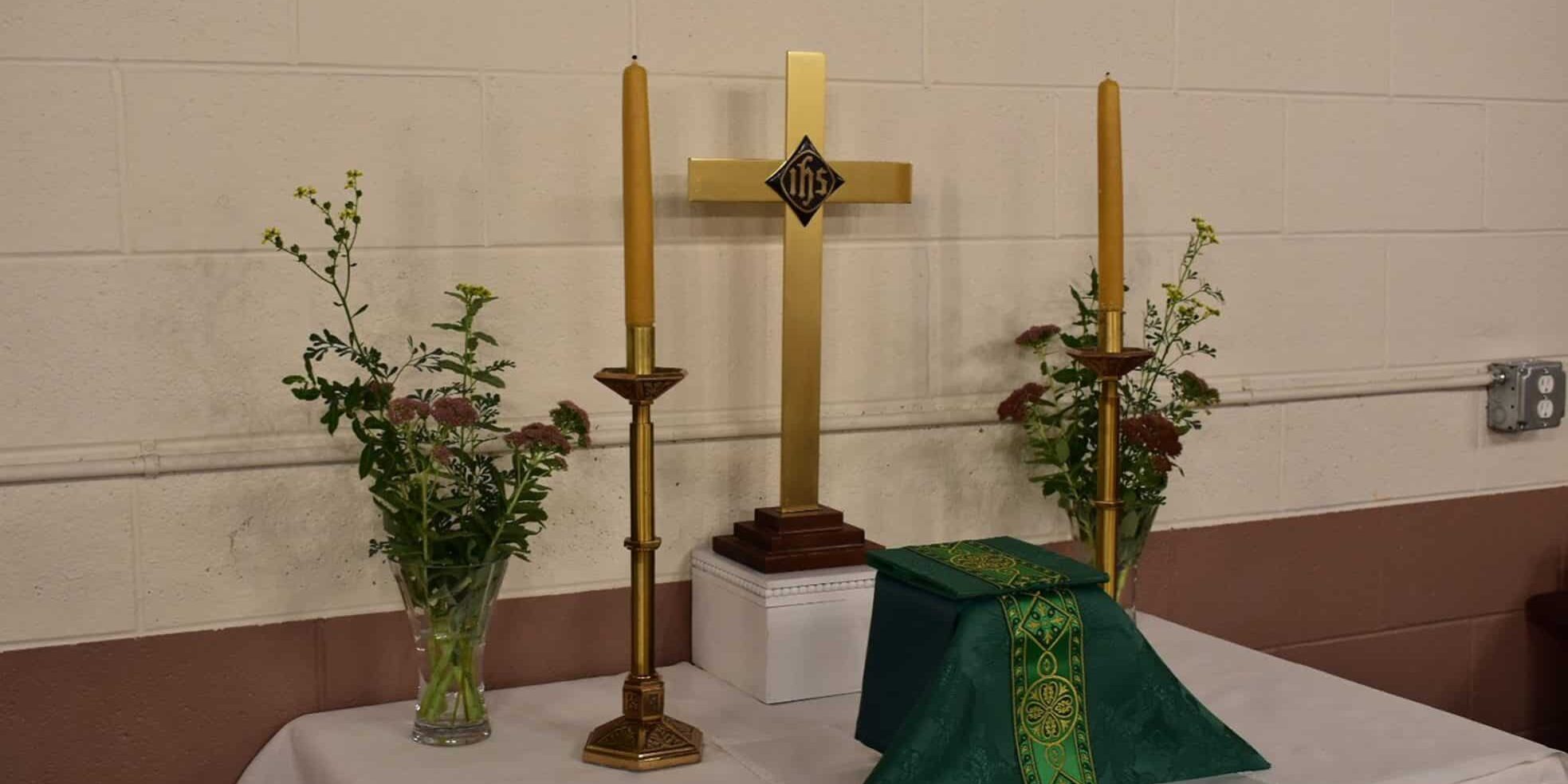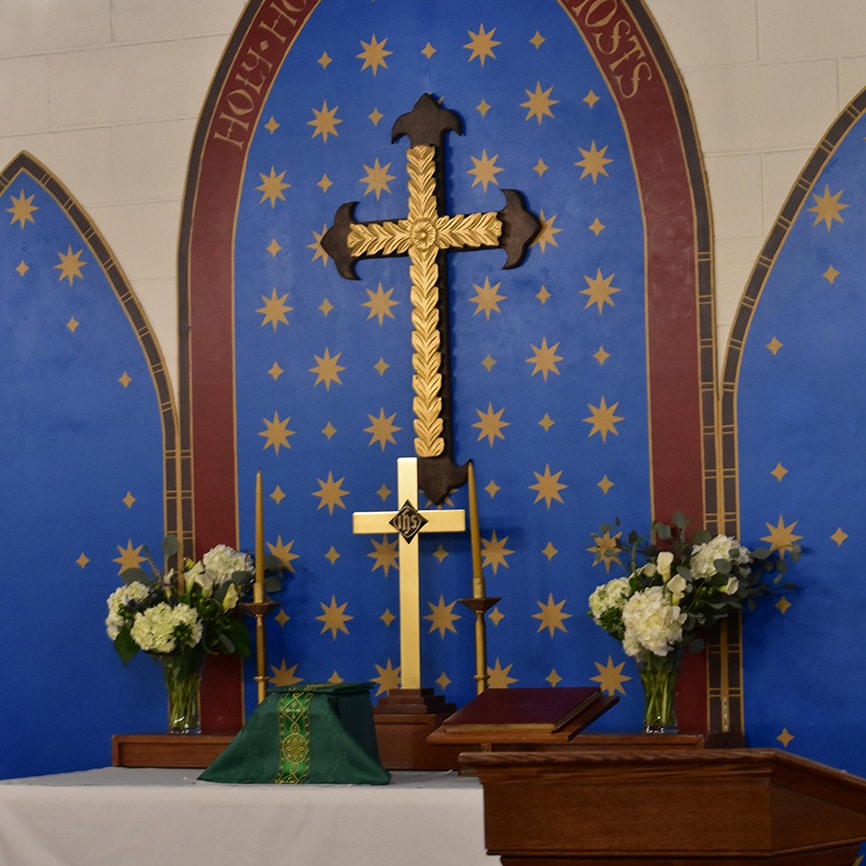This First Sunday after Easter, also called the Octave day of Easter, continues the triumphal theme of its predecessor, and develops it. In the lessons for today, we are given another picture of the disciple’s initial reception of the resurrection, and also how one of those disciples understood the significance of that event and taught about it.
Both last week’s gospel lesson and the lesson for this morning demonstrate to us the fear and confusion associated with the initial reception of Our Lord’s resurrection. In our lesson for easter morning, the news of the empty tomb is met with dismay and fear. The lesson for this morning continues this same theme. In the words of Dr. Crouse, “The Gospel account makes it very clear that for the followers of Jesus, his resurrection was something quite incredible, and even terrifying.
Occupied with mourning his shameful crucifixion, trying to assimilate that tragedy, trying to accept the bitter end of all their cherished hopes, they had no eyes to see his resurrection. St. Mary Magdalene, at the sepulchre, mistook him for the gardener, until he spoke her name. Two disciples walked and talked with him on the road to Emmaus, and did not recognize him until he blessed the bread for their evening meal. St. Thomas refused to believe until he could actually see and touch the wounds of Christ. In spite of all that Jesus had told them beforehand about his death and resurrection, the fact was simply too astounding to be grasped immediately. They supposed they knew the limits of the possible, and this seemed to be utterly outside the bounds of possibility. They had to be shown the reality of his sacred wounds: “He showed unto them his hands and his side.”
Our gospel lesson this morning relates the happenings in the evening of that first day – the day of the Resurrection. Our Lord had early on that morning appeared to Mary Magdalene by the grave; later in the day He had shown Himself to St. Peter; and as the day was coming on to the evening, He walked with two disciples going to Emmaus, and there in the house made Himself known to them in breaking of bread. These two immediately returned to Jerusalem, which was about seven or eight miles from where they had seen Him, and had just entered the room where the other disciples were assembled; they immediately heard from them of His having appeared to St. Peter, after which, they themselves described His conversation with them as they walked, and His making Himself known to them in the house, then while they were yet speaking, Our Lord appears in the midst of them.
St. John describes the scene, “The same day at evening, being the first day of the week, when the doors were shut, where the disciples were assembled, for fear of the Jews, came Jesus and stood in the midst, and saith unto them, Peace be unto you.”
Isaac Williams observes, On His taking leave of them, He had said, “Peace I leave with you; My peace I give unto you. Let not your heart be troubled, neither let it be afraid. I go away and come again.” St. John xiv. 27
And now He returns and finds them again in the evening, for the first time, together; and pronounces and bestows His great blessing of peace—peace beyond all understanding, the gift from above.
This peace, which Jesus pronounces, takes hold of them, as a profound outworking of their faith. For they had gathered in fear, and confusion. They feared the retribution of the Jews and the Romans, they had been denied the opportunity to reverence and hallow the body of their Lord, they were not all ready to receive the testimony of the resurrection, and even if they were, they did not understand its meaning or nature. An inkling of hope was blooming among them, yet even that contributed to the confusion and unrest, unanchored as it was by comprehension and faith. And upon this huddled mass of confused and frightened sheep, Jesus pronounces His peace – the peace which can only be communicated by His presence.
And as He shows them his hands and his side, speaking comforting words, “Come unto me, all ye that travail and are heavy laden,” John writes that “Then were the disciples glad, when they saw the Lord.” What joy must have filled their hearts, as the light of faith dawned upon them. There was no need to fear the Jews or the Romans or anyone else, Jesus Christ had conquered death, what threat could hang over their heads now. And this Lord who had cared for them so tenderly before His death, cared for them even now. He had come to them to comfort and strengthen them, just as he had always done.
St. John tells us, “Then said Jesus to them again, Peace be unto you: As my Father hath sent me, even so send I you. And when he had said this, he breathed on them, and saith unto them, Receive ye the Holy Ghost. Whosesoever sins ye remit, they are remitted unto them; and whosesoever sins ye retain, they are retained.”
The same peace which has so overwhelmed them in this moment, is entrusted to them to carry out into the world. The Father sent the Son to the Apostles, so that they in turn might be sent out to the rest of the world, that they might take with them both the grace and the law of God for the instruction and encouragement of all nations. For they were not the only ones huddled together like lost sheep. The world lived in the same darkness, haggard and weary of the shepherds who abandoned or abused them. The apostles were to go out and bring the same peace they had received to the rest of the world.
In the passage we have from St. John’s first epistle we are given a picture of the peace which he received from Christ, and the means by which it continues to be communicated to the world. He writes, “WHATSOEVER is born of God overcometh the world: and this is the victory that overcometh the world, even our faith. Who is he that overcometh the world, but he that believeth that Jesus is the Son of God?”
Christ has overcome the world, and therefore his disciples may do the same. This victorious and conquering spirit is in such marked contrast to the beginning of the gospel lesson. In the faith of the resurrection of Christ, fear of the world and its threats must fade away. The world has been conquered, it has no more power to frighten the Christian. And St. John goes on, “This is he that came by water and blood, even Jesus Christ; not by water only, but by water and blood.”
Jesus comes not as John the Baptist, only with the cleansing of the baptism of repentance. Not with cleansing only, but also with sacrifice, the sacrifice of His blood, that the penitent might receive the power to live in the power of Christ’s life. In the words of John the Baptist, “As for me, I baptize you with water for repentance, but He who is coming after me is mightier than I, and I am not fit to remove His sandals; He will baptize you with the Holy Spirit and fire.”
Hence, St. John the Evangelist further explains, “And it is the Spirit that beareth witness, because the Spirit is truth.” For in Heaven the Trinity attests to the goodness and faithfulness of God, “For there are three that bear witness in heaven: the Father, the Word, and the Holy Spirit; and these three are one.
The Father, the Son and the Holy Ghost all witness to the goodness of love of God. A love which overcomes the world, and is given to those who have faith. St. John goes on, “And there are three that bear witness on earth: the Spirit, the water, and the blood; and these three agree as one.“
Just as the Trinity bears witness to the goodness and love of God in Heaven, God Himself has ordained that the church would continue to bear witness to goodness of God here on earth. The Holy Spirit, on Pentencost and through His continued ministry amongst the people of God, bears witness to Christ in the world. The Holy Spirit enlivened the church by whom the ministries of water and blood, the other two great witnesses to Christ’s work, are carried on. Baptism and Holy Communion are the testimonies to the victory of Christ over the world and the gift which He makes of that victory to those who have faith.
This is how St. John understands the command to go forth and spread the peace of God, being sent to the world as Christ was sent to himself. The three that bear witness in the world, his part to play in the proliferation of the peace of God is to spread abroad the witness of the Holy Spirit, the water and the blood. These witnesses are to be the source of peace and confidence amongst the church. For they testify to the eternal life we are given in Christ. “These things I have written to you who believe in the name of the Son of God, that you may know that you have eternal life, and that you may continue to believe in the name of the Son of God.
Let us therefore rejoice that we have received these same witnesses. We may know that we have eternal life, just as St. John and all the apostles, just as Christ Himself, by these witnesses which God has given unto us. We may stand with confidence and peace, made glad by the presence of Christ among us. And we are entrusted with this same mission, to spread abroad the peace of Christ. As Christ has been sent to us, so also we are sent out.
April 27, 2025
Christ Church Anglican



